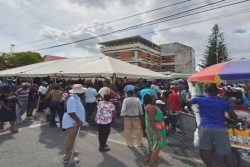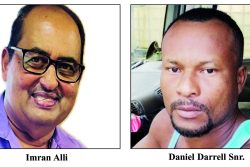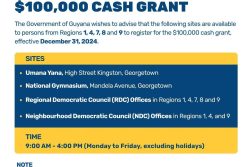Dear Editor,
The police have a critical role in addressing gender-based violence. The media has reported on the graduation of the police in the most recent training initiative COPSQUAD2000.The Guyana Chronicle reports on 26/09/2021 “‘CopSquad2000’ graduates ready to combat gender-based violence” that at the graduation ceremony, Com-missioner (ag) Nigel Hoppie DSM noted that “.. domestic violence training is a part of the curriculum at the police training college, and is included and integrated into the `recruit programme’ as well as most of the training programme[s] conducted at the college.”
The inclusion of the domestic violence training in the police recruit training was done to ensure that donor funds do not have to be used to continue the training. Domestic violence is the most pervasive form of gender-based violence. There was meant to be associated training to respond to reports of sexual violence and other forms of gender-based violence. The training initiatives started after the Domestic Violence Act was passed in 1996. Police have been trained with the support of the Canadian Government, other foreign governments, the IDB, the United Nations and through work done by the NGOs and the Government of Guyana. The training was supplemented by activities such as posters in the police stations to explain to the public what they should expect. The Ministry of Human Services and Social Security is continuing the labour of NGOs, previous administrations and donor agencies to do training in the police force to fix the problem of inconsistent police response to reports of gender based violence.
Commissioner Hoppie’s reference opens the question as to why is the domestic violence training in the police school not enough? Do the police recruits forget the training when they go out in the field? What changes are needed in the training of police recruits to ensure that they respond appropriately? What mechanisms are in place to ensure that the police are accountable after training? What do the police in the field need from their administration to ensure that they can respond as they have been trained?
The media did not report if any of the police who participated in the training spoke of their experiences and what they learned in the training. The public, UNFPA and the Government agencies would no doubt benefit from hearing at future graduations from the participants about their experience of the COPSQUAD200 training, and how this training is different from the training they received as recruits which Commissioner Hoppie noted. And how they can be held accountable for ensuring that there are appropriate responses to the reports of domestic violence and other forms of gender-based violence.
Yours sincerely,
Vidyaratha Kissoon





